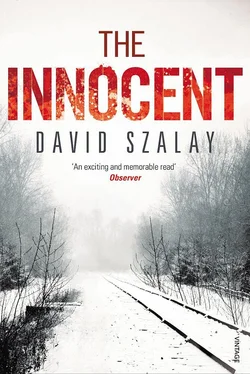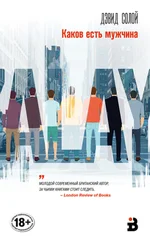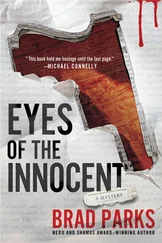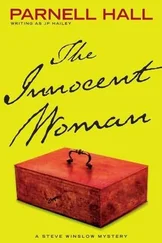In the Ural restaurant, tucking into the zakouski – some smoked trout, some pickled garlic, some cucumber and sour cream – you said, ‘Do you think the necessary funds were released?’
‘I’ve no idea.’
With a flourish, you produced a second letter, obviously an answer to the first, written several days later, from the office of the oblispolkom secretary for transport.
The government’s decree (15 February 1948) forbids the covering of losses of economic organisations. Thus the railway and its economic units are obliged to take all measures not only to make good the circulating capital which they allowed to be exhausted in 1947, but to find additional sources of accumulation, and to achieve the stable financial position of their subdivisions.
‘Where did you get these letters?’ I said.
‘They were sent to me anonymously at the paper.’
‘It’s probably embezzlement.’
‘Possibly.’
I made a little speech. I said, ‘The state can’t keep pouring money into the pockets of managers who steal from their enterprises. Something has to be done about it. It amounts to sabotage. And the ordinary workers are the ones who suffer. It’s good that you’re writing about it. We need to increase people’s awareness of this. These people need to be exposed and dealt with. It’s the only long-term solution –’
‘It may be a case of embezzlement,’ you said, interrupting me, ‘or it may not. That isn’t the point.’
‘Oh, isn’t it? What is the point?’
‘The point is what happened next.’
‘Which was?’
‘There was a strike.’
‘What do you mean?’
‘What do you think?’ You were almost whispering, leaning towards me over your now empty plate with a newly lit papirosa in your hand. ‘There was an organised, coordinated strike, which lasted for several days.’
Suddenly you sat back and smiled. The waitress – the pretty one you liked so much – put our lunch on the table.
‘A strike?’ I said, when she had moved away. You nodded, holding your spoon. ‘What makes you think that?’
‘I have several sources,’ you said. ‘And there have been massive disruptions on the railway.’
‘Not necessarily caused by a strike. The disruptions could have been caused by something else.’
‘Like what?’
‘I don’t know. A mudslide, for instance.’
Stirring your soup, you smiled knowingly. ‘A mudslide?’
‘For instance,’ I said.
‘Well, as it happens, that’s exactly what they’re saying.’
‘Who?’
‘The management of the railway, and the oblispolkom. They’re saying there was a mudslide, but they’re very vague about where. Very vague indeed.’
‘What are you saying?’
‘I don’t think there was a mudslide.’ You started to eat.
‘Why?’
‘Sasha,’ you said with your mouth full, ‘one mudslide wouldn’t shut the whole railway!’
‘It depends where it was.’
‘The strike started with the engine drivers,’ you said, ‘and spread very quickly. The whole workforce was refusing to work until they were paid –’
‘You’re not planning to write about this?’ I said suddenly.
‘Why not? You said it would be good to write about it.’
‘Don’t be stupid! You know what I meant. It would be good for you to write about the embezzlement that led to the situation described in those letters. The strike, if there was one, isn’t the point. It’s nothing to do with the underlying problems. You mustn’t write about it.’ In those days I worried about you, Ivan. Your name was mentioned in the wrong places. It was starting to appear on the wrong lists. I know you wanted to be successful. You wanted to be editor of ‘Pravda’. What you did not seem to understand was that nothing could be worse for your prospects of success than the sort of name you were making for yourself. I don’t know why you didn’t understand that. Perhaps because you had started your journalistic career with such a shocking, sensational exposé – the fact that the sons and daughters of obkom members were being awarded degrees from the Urals State Technical University, including medical degrees, without having passed the exams. Publicly you were feted for that. Unfortunately, it also made you enemies. I know it frustrated you to see your more politically skilful peers move into positions of editorial power, or to Moscow to work on the nationals, while you were still sent out to Uralmash to interview Stakhanovites. I know you were desperate to make some sort of mark, something that would be reprinted – as the Urals State exposé was – in the national press. You may have thought the strike story would do that. It wouldn’t. And there was no shortage of people willing to stab you in the back if you made such a stupid mistake. I don’t know if you ever understood quite what a precarious position you were in. I understood, and I was worried about you. I knew you saw me as a sort of protection. There was, though, a limit to what I would be able to do, which was why I said, ‘You must not write about it.’
Later, we walked along Lenin Prospekt. You were sullen. ‘Listen,’ I said, ‘I understand the suffering of those workers, but a strike – if there was one – would be seen as a hostile political act. To publicise it wouldn’t help them. Not that it would be published, if you wrote about it. And writing about it wouldn’t help you either. Quite the opposite. So what would be the point? You’ve got to forget about it, the whole thing.’
Sulkily, smoking, you watched a tram pass. It was early spring, everything was wet. I see the exact moment, the sodden wooden pavement, the expression on your face. I thought I understood you then. I thought we were essentially the same. We were both saved from village life by Yevdokimov, who made it possible for us – first me, then you – to go to school in Sverdlovsk. He understood the urgent need to establish a working-class intelligentsia, which unlike the old tsarist specialists on whom we were still dependent in those years, would be progressive in its instincts. When we arrived in Sverdlovsk, we were not aware – were we? – that our education was part of an effort to do this. What is undeniably true is that it would have been impossible for us to have had such an education before 1917. Our lives would have been like those of our parents – illiterate, ignorant, impoverished, without hope. That they were not, the opportunities that we have had, we owe entirely to the party.
‘Who were your sources for this?’ I said. ‘How can you trust them? You pay them, I suppose? Slip them a bottle of vodka?’
‘I trust them.’
‘Perhaps you should let me have those letters.’
‘Why?’
‘I’ll look into it. There may be something …’ I shrugged. Without enthusiasm you handed me the letters – I did not want them to be found in your possession, that was why I took them from you. ‘Have you mentioned this to anyone else?’ I said.
‘Of course not.’
‘Not to Katya?’
‘No.’
‘And not to … You know who I mean.’
You paused, perhaps stung by this – were you stung by it? – and then shook your head.
That spring was the time of the Zhdanovshchina. Another word you will have forgotten, Ivan. You knew it once. The Zhdanovshchina. People’s minds are formed by what they see and hear – a lifetime in journalism has surely taught you that – and if, for instance, Leningrad’s literary journals were obsessed with the most nihilistic modern writing from the West, it undermined our efforts to move towards Communism, to move towards it in people’s minds. That was the most important thing. People’s minds. I therefore spent much of my time interviewing members of the intelligentsia about their work. Unfortunately, some of the others took a very negative approach to this, laughing at poems in front of the people who had written them, and saying, ‘Who would want to read this? What does this have to do with the everyday lives of ordinary people?’ Or looking exaggeratedly pained as someone’s music was played, and then shouting, ‘Why would anyone want to listen to that? The average person wants music they can hum!’ Such philistinism succeeded only in turning people against us.
Читать дальше












